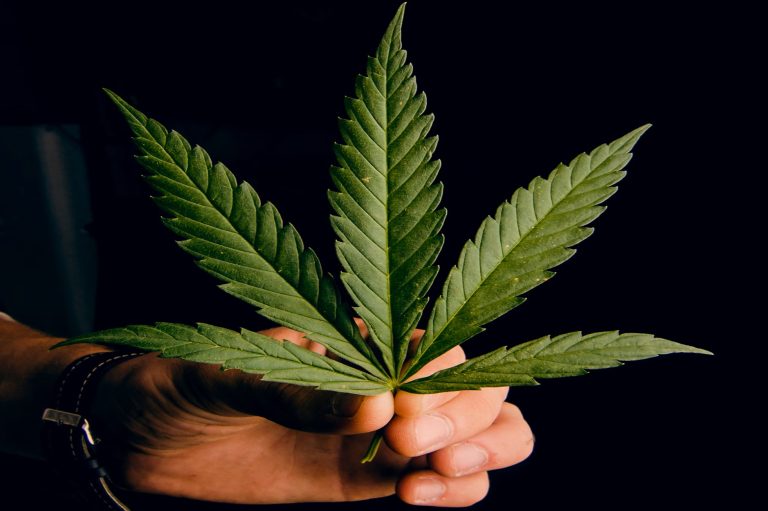
Marijuana, specifically the compounds THC (tetrahydrocannabinol) and CBD (cannabidiol), has been shown to have potential benefits in managing anxiety symptoms in some individuals. Here are a few ways in which marijuana may help anxiety:
- Relaxation: Marijuana can induce feelings of relaxation and calmness, which can be helpful in reducing anxiety symptoms. This effect is thought to be due to the way that THC interacts with the brain’s cannabinoid receptors, which play a role in regulating mood and emotions.
- Reduced activity in the amygdala: The amygdala is the part of the brain that plays a key role in the body’s stress response. Studies have shown that marijuana use can reduce activity in the amygdala, which may help to alleviate anxiety symptoms.
- Pain relief: For some individuals, anxiety may be triggered or exacerbated by physical pain. Marijuana has been shown to have pain-relieving properties, which may help to reduce anxiety symptoms that are related to pain.
It’s important to note that while some individuals may experience anxiety relief from marijuana use, others may find that it increases their anxiety symptoms. Additionally, marijuana use can have potential side effects and risks, including impaired judgment and cognitive function, so it’s important to discuss the potential risks and benefits with a healthcare provider before using marijuana to manage anxiety symptoms.
Risks of Treating Anxiety Disorders with Marijuana
While marijuana has been shown to have potential benefits in managing anxiety symptoms, it is important to consider the potential risks and drawbacks of using it as a treatment for anxiety disorders. Here are a few potential risks:
- Negative side effects: Marijuana use can cause a variety of negative side effects, including impaired cognitive function, impaired motor function, and increased heart rate. These side effects can be particularly problematic for individuals with anxiety disorders, as they can exacerbate anxiety symptoms.
- Addiction: Marijuana use can be habit-forming, particularly for individuals who use it frequently or in large amounts. This can lead to addiction, which can further exacerbate anxiety symptoms and lead to a range of negative consequences.
- Interference with other treatments: Marijuana use can interfere with the effectiveness of other treatments for anxiety disorders, including psychotherapy and medication. Additionally, some medications used to treat anxiety disorders can interact with marijuana, leading to potentially harmful effects.
- Legal and social consequences: In many areas, marijuana use is illegal, and individuals who use it may face legal consequences. Additionally, some individuals may face social consequences, such as job loss or strained relationships, as a result of their marijuana use.
It’s important to discuss the potential risks and benefits of using marijuana as a treatment for anxiety disorders with a healthcare provider before making any decisions about treatment. In some cases, alternative treatments, such as psychotherapy or medication, may be more appropriate.
- California: Medical marijuana is allowed for the treatment of anxiety and several other medical conditions. To be eligible for medical marijuana in California, you need to have a qualifying medical condition that is listed under the state’s medical marijuana program. Anxiety disorders, including generalized anxiety disorder and social anxiety disorder, are among the qualifying medical conditions in California.
- New Jersey: Medical marijuana in New Jersey is allowed for the treatment of anxiety and several other medical conditions. Anxiety disorders, including generalized anxiety disorder and social anxiety disorder, are among the qualifying medical conditions in New Jersey.
- Connecticut: Medical marijuana in Connecticut is allowed for the treatment of anxiety and several other medical conditions. Anxiety disorders, including generalized anxiety disorder and post-traumatic stress disorder (PTSD), are among the qualifying medical conditions in Connecticut.
- Florida: Medical marijuana is allowed for the treatment of anxiety and several other medical conditions. Anxiety disorders, including generalized anxiety disorder and post-traumatic stress disorder (PTSD), are among the qualifying medical conditions in Florida.
- Illinois: Medical marijuana in Illinois is allowed for the treatment of anxiety and several other medical conditions. Anxiety disorders, including generalized anxiety disorder, post-traumatic stress disorder (PTSD), and obsessive-compulsive disorder (OCD), are among the qualifying medical conditions in Illinois.
- New York: Medical marijuana is allowed for the treatment of anxiety and several other medical conditions. Anxiety disorders, including generalized anxiety disorder and post-traumatic stress disorder (PTSD), are among the qualifying medical conditions in New York.
- Pennsylvania: Medical marijuana is allowed for the treatment of anxiety and several other medical conditions. Anxiety disorders, including generalized anxiety disorder, post-traumatic stress disorder (PTSD), and obsessive-compulsive disorder (OCD), are among the qualifying medical conditions in Pennsylvania.


